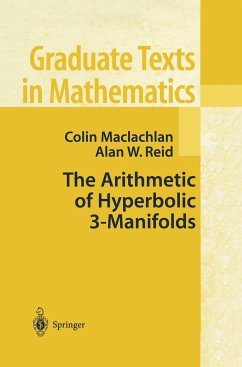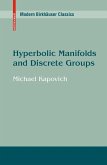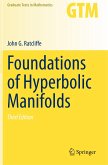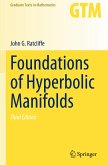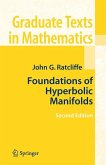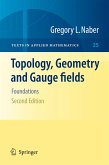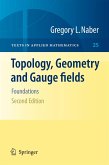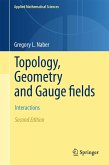For the past 25 years, the Geometrization Program of Thurston has been a driving force for research in 3-manifold topology. This has inspired a surge of activity investigating hyperbolic 3-manifolds (and Kleinian groups), as these manifolds form the largest and least well- understood class of compact 3-manifolds. Familiar and new tools from diverse areas of mathematics have been utilized in these investigations, from topology, geometry, analysis, group theory, and from the point of view of this book, algebra and number theory. This book is aimed at readers already familiar with the basics of hyperbolic 3-manifolds or Kleinian groups, and it is intended to introduce them to the interesting connections with number theory and the tools that will be required to pursue them. While there are a number of texts which cover the topological, geometric and analytical aspects of hyperbolic 3-manifolds, this book is unique in that it deals exclusively with the arithmetic aspects, which are not covered in other texts. Colin Maclachlan is a Reader in the Department of Mathematical Sciences at the University of Aberdeen in Scotland where he has served since 1968. He is a former President of the Edinburgh Mathematical Society. Alan Reid is a Professor in the Department of Mathematics at The University of Texas at Austin. He is a former Royal Society University Research Fellow, Alfred P. Sloan Fellow and winner of the Sir Edmund Whittaker Prize from The Edinburgh Mathematical Society. Both authors have published extensively in the general area of discrete groups, hyperbolic manifolds and low-dimensional topology.
Hinweis: Dieser Artikel kann nur an eine deutsche Lieferadresse ausgeliefert werden.
Hinweis: Dieser Artikel kann nur an eine deutsche Lieferadresse ausgeliefert werden.
From the reviews:
"In this book Machlachlan and Reid give a comprehensive treatment of hyperbolic 3-manifolds and Kleinian groups from the viewpoint of algebraic number theory. ... Throughout the book, Machlachlan and Reid use examples to motivate and illustrate the ideas they develop. ... This book is a welcome addition to the literature on Kleinian groups and hyperbolic geometry. It is both an accessible introduction to the number theoretic side of the field and a convenient source of reference material for the expert." (J. R. Parker, Proceedings of the Edinburgh Mathematical Society, Issue 48, 2005)
"This book is aimed at ... exposing readers ... to the specific techniques from algebra and number theory needed to effectively study arithmetic manifolds and orbifolds. ... The list of references is quite extensive, but even more useful are the Further Reading sections ... which comprise a carefully annotated bibliography of the field. This book fills a real void in the literature, providing working topologists and graduate students with an accessible introduction to the useful and beautiful world of arithmetic hyperbolic 3-manifolds and orbifolds." (Kerry N. Jones, Mathematical Reviews, 2004 i)
"The book gives a comprehensive introduction into the theory of quaternion algebras and its orders, deals with trace fields for Kleinian groups, a notion which allows us to determine the associated number field and quaternion algebra. ... The book is well written and is a substantial addition to the literature. It provides a suitable introduction into a deep area of research still under development." (J. Schwermer, Monatshefte für Mathematik, Vol. 145 (4), 2005)
"This is a book of great importance on the theory of hyperbolic manifolds (and Kleinian groups) since it is the first to provide a complete, precise, clearly-written and self-contained exposition of the arithmetic aspects of the theory. For this, the book fills a void inthe mathematics literature concerning hyperbolic geometry. The authors are two of the most fine mathematicians in the subject, and have made fundamental and beautiful contributions to the material included. ... the reviewer highly recommends this beautiful book ... ." (Alberto Cavicchioli, Zentralblatt MATH, Vol. 1025, 2003)
"This book is aimed at readers already familiar with the basics of hyperbolic 3-manifolds or Kleinian groups, and it is intended to introduce them to the interesting connections with number theory and the tools that will be required to pursue them. While there are a number of texts that cover the topological, geometric, and analytical aspects of hyperbolic 3-manifolds, this book is unique in that it deals exclusively with the arithmetic aspects, which are not covered in other texts." (L'ENSEIGNEMENT MATHEMATIQUE, Vol. 49, (1-2), 2003)
"In this book Machlachlan and Reid give a comprehensive treatment of hyperbolic 3-manifolds and Kleinian groups from the viewpoint of algebraic number theory. ... Throughout the book, Machlachlan and Reid use examples to motivate and illustrate the ideas they develop. ... This book is a welcome addition to the literature on Kleinian groups and hyperbolic geometry. It is both an accessible introduction to the number theoretic side of the field and a convenient source of reference material for the expert." (J. R. Parker, Proceedings of the Edinburgh Mathematical Society, Issue 48, 2005)
"This book is aimed at ... exposing readers ... to the specific techniques from algebra and number theory needed to effectively study arithmetic manifolds and orbifolds. ... The list of references is quite extensive, but even more useful are the Further Reading sections ... which comprise a carefully annotated bibliography of the field. This book fills a real void in the literature, providing working topologists and graduate students with an accessible introduction to the useful and beautiful world of arithmetic hyperbolic 3-manifolds and orbifolds." (Kerry N. Jones, Mathematical Reviews, 2004 i)
"The book gives a comprehensive introduction into the theory of quaternion algebras and its orders, deals with trace fields for Kleinian groups, a notion which allows us to determine the associated number field and quaternion algebra. ... The book is well written and is a substantial addition to the literature. It provides a suitable introduction into a deep area of research still under development." (J. Schwermer, Monatshefte für Mathematik, Vol. 145 (4), 2005)
"This is a book of great importance on the theory of hyperbolic manifolds (and Kleinian groups) since it is the first to provide a complete, precise, clearly-written and self-contained exposition of the arithmetic aspects of the theory. For this, the book fills a void inthe mathematics literature concerning hyperbolic geometry. The authors are two of the most fine mathematicians in the subject, and have made fundamental and beautiful contributions to the material included. ... the reviewer highly recommends this beautiful book ... ." (Alberto Cavicchioli, Zentralblatt MATH, Vol. 1025, 2003)
"This book is aimed at readers already familiar with the basics of hyperbolic 3-manifolds or Kleinian groups, and it is intended to introduce them to the interesting connections with number theory and the tools that will be required to pursue them. While there are a number of texts that cover the topological, geometric, and analytical aspects of hyperbolic 3-manifolds, this book is unique in that it deals exclusively with the arithmetic aspects, which are not covered in other texts." (L'ENSEIGNEMENT MATHEMATIQUE, Vol. 49, (1-2), 2003)

